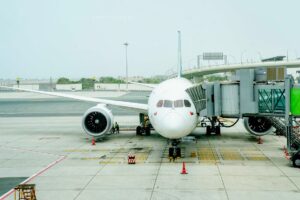The United States of Africa stands on the cusp of a digital revolution, poised to transform the continent through an ambitious plan to create a comprehensive digital highway infrastructure. This visionary project, centered around the Open Internet Freeway, aims to connect millions of Africans and unlock unprecedented opportunities across various sectors.
The African Mesh Network: A Foundation for Connectivity
At the heart of this initiative is the African Mesh Network, a groundbreaking approach to providing widespread internet access. Drawing inspiration from successful projects like the Moja WiFi network in Mathare Valley, Kenya, this mesh network will be the largest of its kind in Africa. By empowering local communities to establish their own free WiFi zones, the project echoes the community-driven approach that has proven effective in other developing regions.
The provision of ready-made kits and architectural plans for network deployment mirrors successful initiatives in rural areas, such as those implemented in parts of South Africa. This approach not only facilitates rapid deployment but also ensures consistency and quality across the continent.
Nurturing Home-Grown Expertise
The establishment of Technology Institutes dedicated to training telecom engineers is crucial for the long-term sustainability of the project. This approach echoes the success of countries like South Korea, which invested heavily in technical education to support its rapid technological advancement.
Safeguarding Africa’s Digital Future
The creation of a Network Security Agency underscores the importance of cybersecurity in the modern era. This proactive stance on digital security is reminiscent of Estonia’s approach following cyber attacks in 2007, which led to the country becoming a global leader in cybersecurity.
Free WiFi and Data: Catalyst for Growth
The provision of free WiFi and data access is a bold move that recognizes the transformative power of connectivity. Similar initiatives, like India’s Digital India program, have demonstrated the potential of widespread internet access to drive economic growth and social development.
Building a Self-Reliant Telecom Industry
The commitment to manufacturing “Made in Africa” WiFi and networking equipment echoes China’s strategy in developing its domestic tech industry. This approach not only ensures technological self-reliance but also creates significant economic opportunities within the continent.
Challenges and Opportunities
While ambitious, this vision faces significant challenges, including:
- Infrastructure development in remote areas
- Ensuring equitable access across diverse regions
- Maintaining network quality and reliability
- Addressing potential digital divides within communities
However, the potential benefits far outweigh these challenges. By connecting millions of Africans, this initiative could:
- Revolutionize education through e-learning platforms
- Enhance healthcare delivery through telemedicine
- Boost financial inclusion through digital banking
- Stimulate entrepreneurship and innovation
Conclusion
The United States of Africa’s vision for a digital highway infrastructure represents a bold step towards a connected, prosperous future. By learning from successful models worldwide and adapting them to the African context, this initiative has the potential to leapfrog traditional development stages and position Africa as a global leader in the digital age.
As we move forward, collaboration between governments, the private sector, and local communities will be crucial to realizing this vision. The Open Internet Freeway is not just about connecting people to the internet; it’s about connecting Africa to a future of unlimited possibilities.




